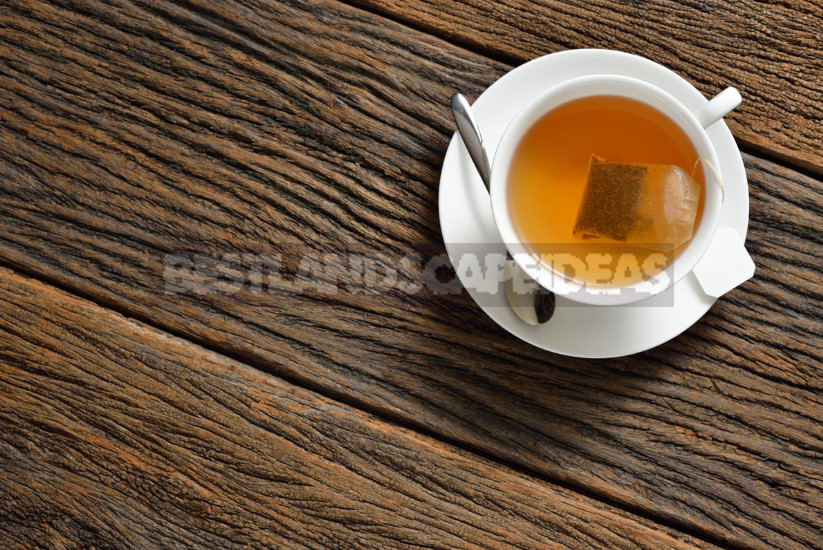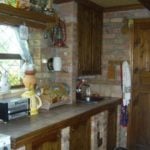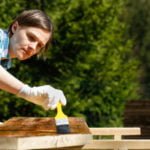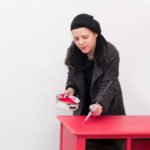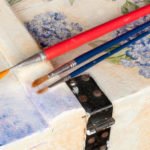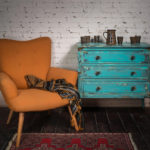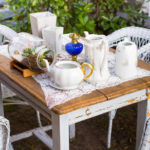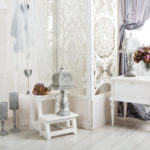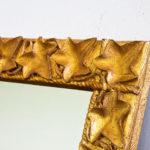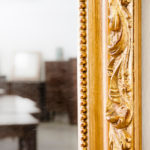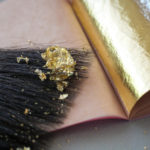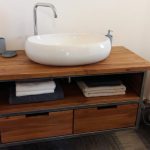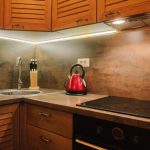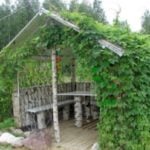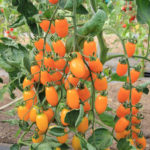Wood is a good material: if you want-build, if you want-use for finishing. It is possible and to make furniture. One of the important positive properties of wood-a lot of options for finishing its surface. Each method has its own unique effect, and it can be chosen for any image and style.
This material is durable: natural wood furniture with proper care is for many years-tens or even hundreds. And wood does not lose its beauty over time — on the contrary, like cognac, can become even more interesting.
The charm of the time-worn wooden surface is so strong that there is a whole direction in the production of furniture — artificial aging. In this material, we consider how to give the surface of the tree a more respectable appearance mechanically.
Brushing
The wood is heterogeneous in its composition: annual rings are visible on the cut of the tree. The number of circles determines the age, and their width depends on many reasons: breed, food conditions, weather, location (in the sun or in the shade). Annual rings are wider in young trees — they grow more actively. The size of the rings is also influenced by whether a particular tree has grown from a seed (narrower) or root shoots.
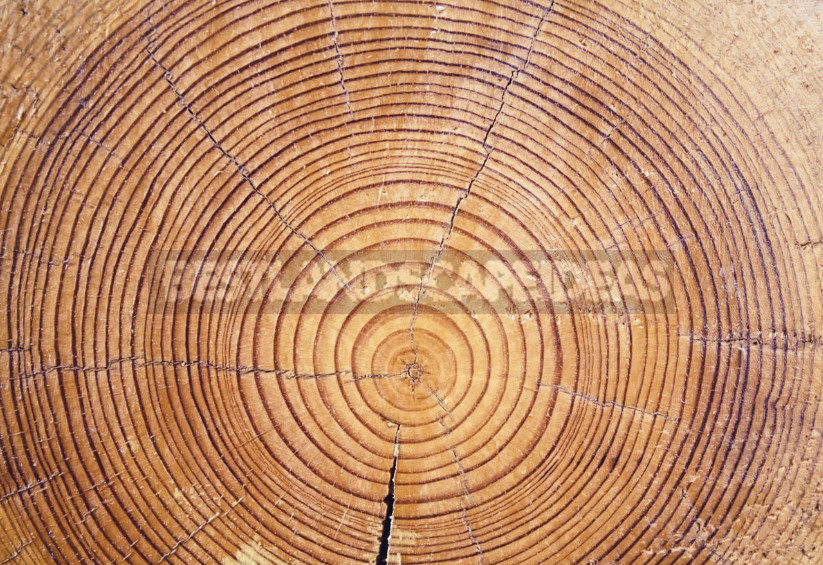
Light and wider area of the ring is an increase in the first half of the period of active vegetation (spring and early summer), thin and dark — what has grown in the second half of summer and autumn. All together represents an increase of one year.
In early summer, a looser conductive fabric is formed. With the second half of the solid cells grow, able to withstand mechanical stress — they give the tree stability. The pattern of annual rings is also visible on the longitudinal cut of the tree.
Over time, the wood is destroyed. Especially if the Board or wood products are outdoors-under the influence of the sun, rain, frost and wind. Light soft areas are destroyed faster, so over time the surface of the wood becomes uneven, ribbed.
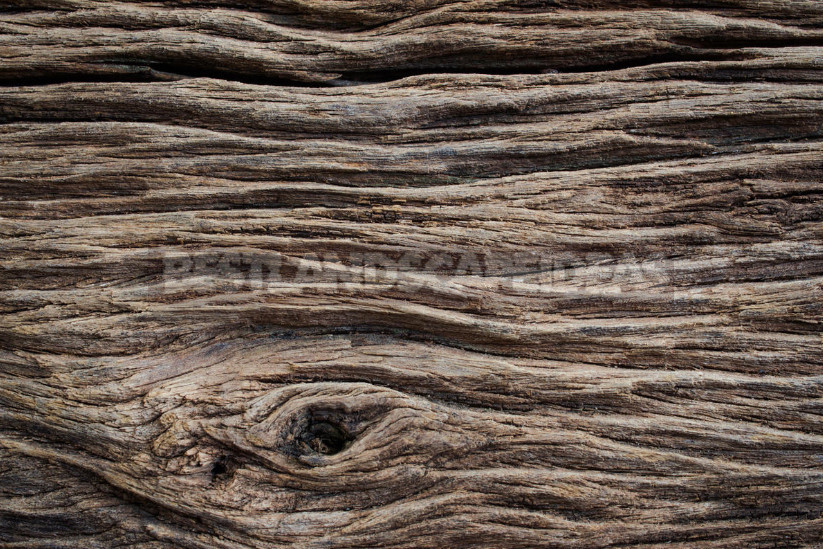
In order to achieve this result, it is not necessary to wait for many years, keeping the tree under the sun and wind. The wood can be aged by brushing.
The process involves the mechanical removal of softer fibers. To do this, use a stiff brush. Depending on the required degree of aging, use tools of different stiffness: metal, nylon, sisal. Perhaps their combination: for deeper and rough treatment is used a metal brush, and nylon and then sisal treated surface to remove burrs.
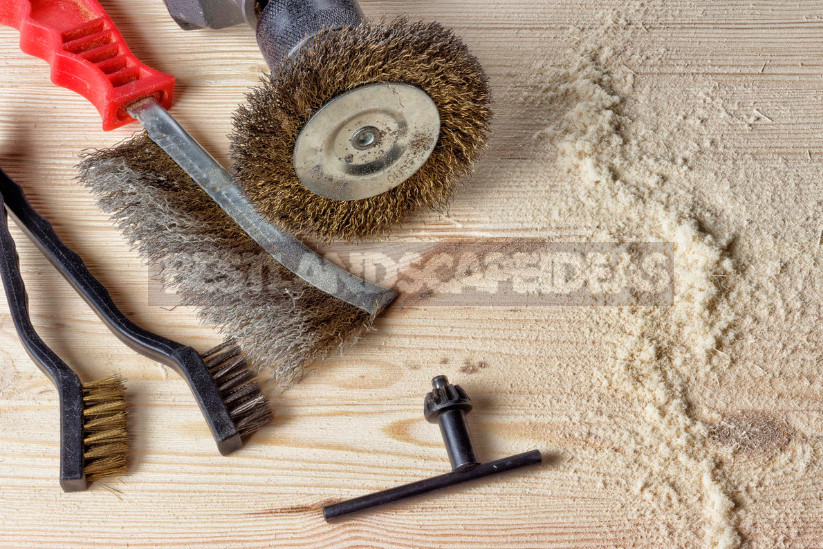
In addition to the nozzles on the drill or angle grinder, it is necessary to get a hand tool-abrasive sandpaper of different grit, hand corduroy. It is also convenient to use abrasive sponges: flexible surface allows you to remove splinters from the recesses.
Regardless of the choice, during the work should take into account the direction of movement: it should be on the fibers of wood. Therefore brushes nozzles on the power tool are necessary flat, but not in the form of a Cup.
Before you start the aging process, practice on the sample.
With the help of various brushes can not only simulate atmospheric aging (exposure to wind, sun), but also the effect of run-water wood — the kind you might find on a river or the sea. In this case, the wood is processed more deeply, and “traces of time” can be not only along the fibers. An example of this aging — box in the photo below.
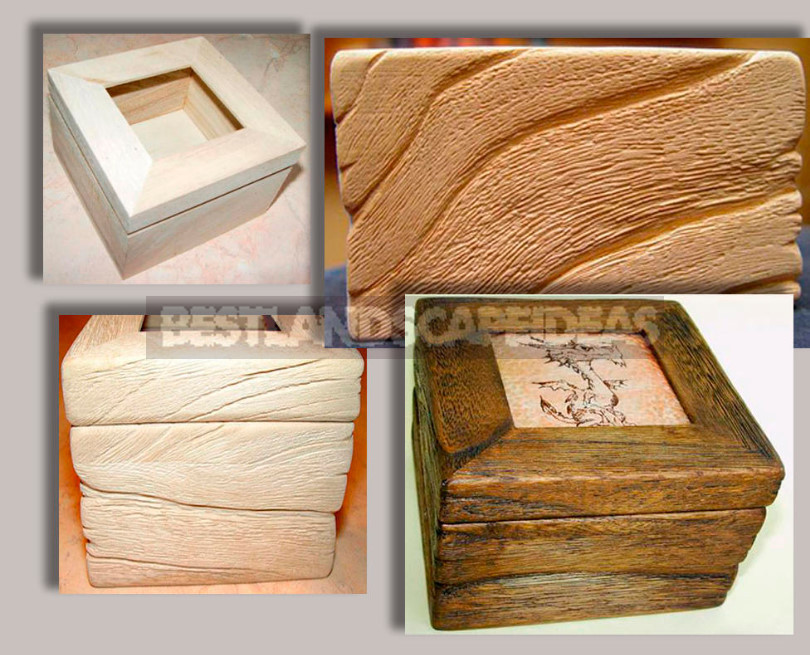
In addition to the mechanical method (brushes), wood is textured by means of chemistry or sandblasting. The principle is the same: the softer parts are removed.
In the chemical method, acids and alkalis are used that can corrode organic matter, for example, sulfuric or nitric acid. You can experiment with aggressive household chemicals designed to remove heavy pollution. Chemical treatment is used as an independent option or as an initial step before mechanical cleaning with brushes.
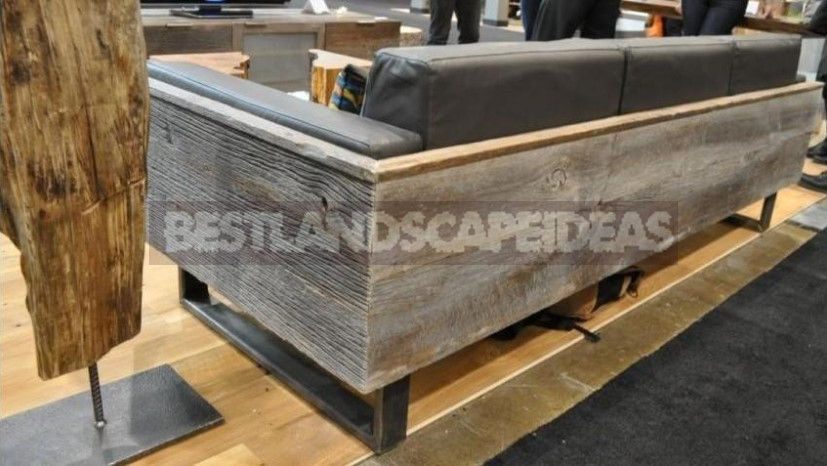
During the processing by abrasive blasting the abrasive particles knock soft layers. Sandblasting can be found in car repair shops — with the help of such equipment, rust is removed.
The use of different methods of brushing allows you to get a different effect. When treated with metal brushes, the relief of wood fibers will be deeper and more obvious, after chemical etching and sandblasting — smoothed.
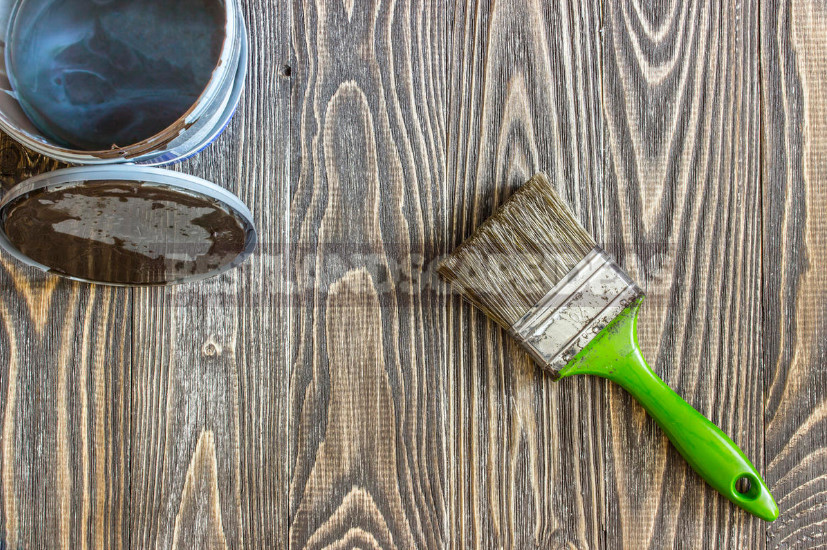
After receiving the required texture, the wood is treated with stains, waxes, glaze coatings, varnishes. Kohler compounds the soft part of the stain is stronger than solid. Blue additionally stress relief, accumulating in depressions.
Firing
The burning of wood is often considered as the first stage of brushing-as well as chemical etching, primarily destroyed softer areas.
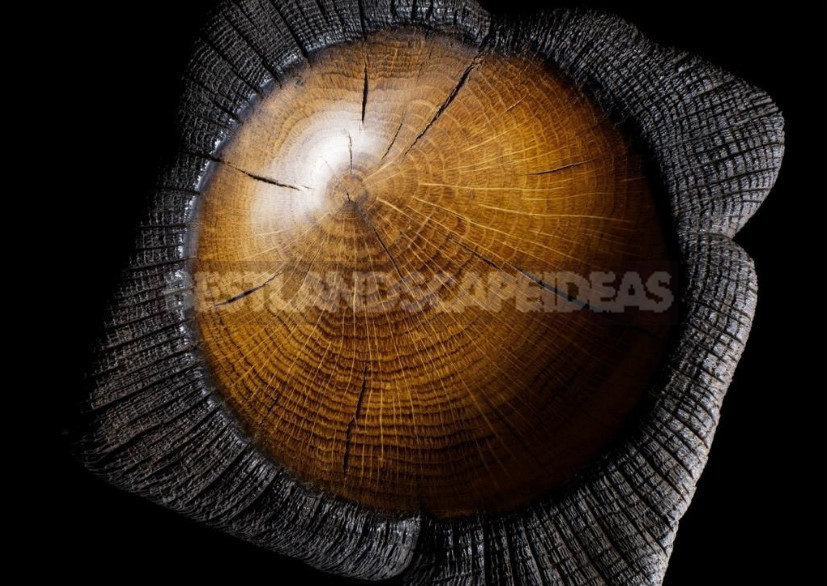
The wooden surface is burned with a blowtorch or gas burner, and then the charred parts are cleaned, washed with plenty of water and covered with oil. The degree of firing and subsequent brush treatment depends on the preference.
Passed fire and water wood does not need additional toning — the surface of the Board takes a noble dark shade. But if desired, burnt wood can be further covered with colored stains. The combination of red and coal-black looks especially impressive.
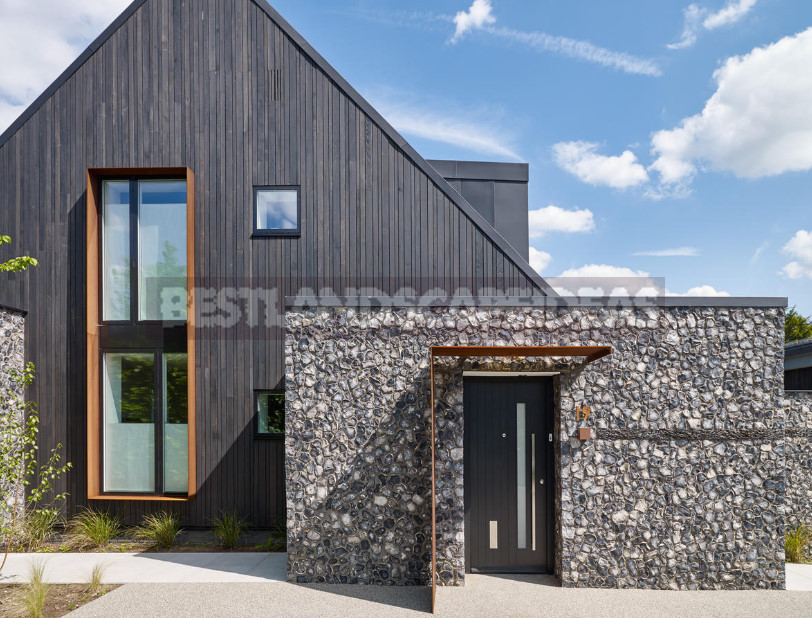
Firing can be an independent type of finishing. Now this direction is gaining popularity and is considered a Japanese technique Shou Sugi Ban (Yakisugi), although this method of woodworking is known in many countries.
The wood processed by fire becomes less combustible and practically is not subject to rotting and damage by insects. Therefore, such boards are used for cladding facades, construction of fences. Regularly paint a fence or facade is not necessary — burnt Board does not change its qualities for a hundred years.
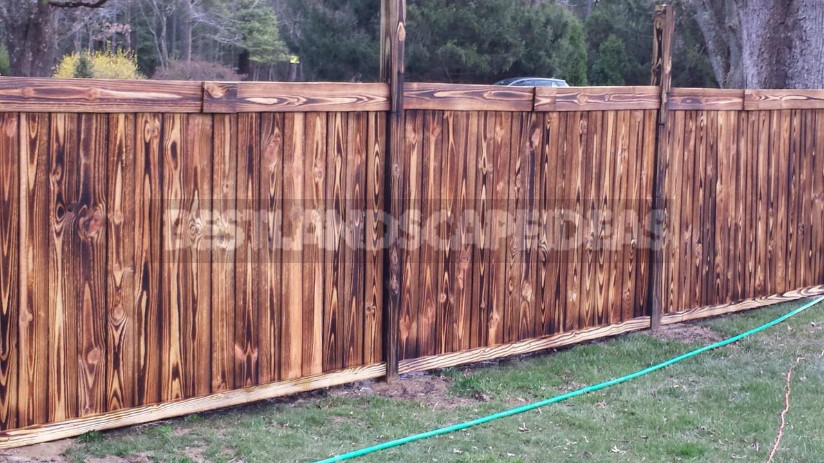
Naturally, designers could not pass by such material. They began to use in interiors the objects processed by fire, to apply boards in the technique of Shou Sugi Ban of a different degree of charred for finishing of walls and ceilings. Covered with oil, the surfaces do not get dirty.
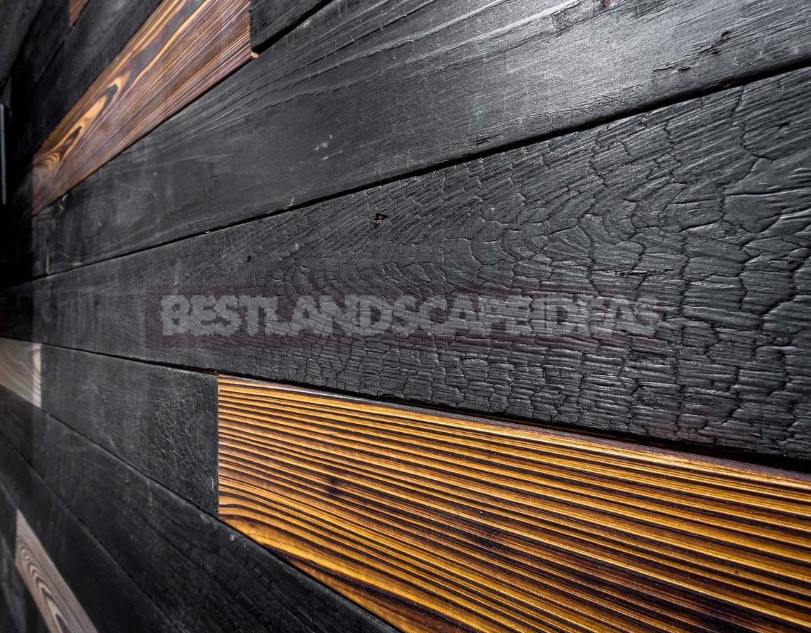
Then the designers went even further and learned how to decorate the roasting pieces of furniture. Looking as if saved from the fire things may not appeal to everyone, but look very stylish.
Try to texture the usual wood-perhaps you will discover a new material.
